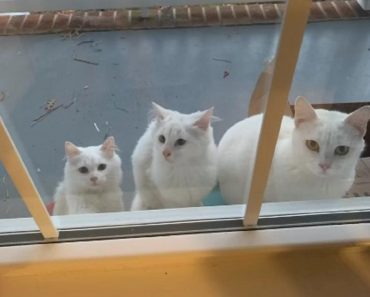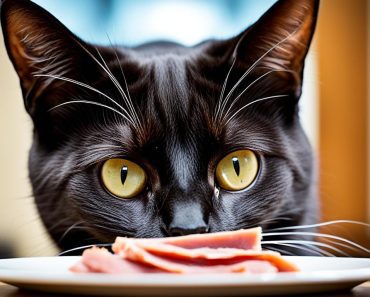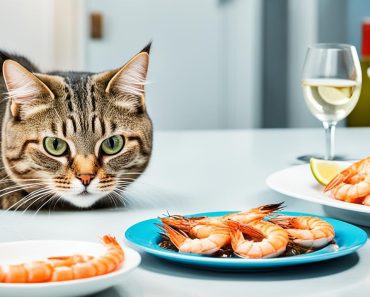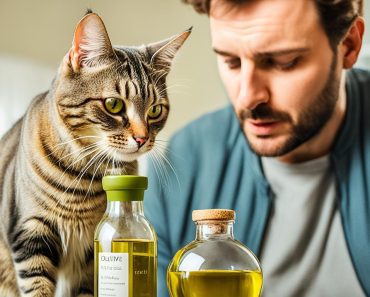As a cat owner, I’ve often wondered about the safety of certain foods for my furry friend. One ingredient that has caught my attention is cinnamon. Can cats eat cinnamon? Is it safe for them? After conducting research and consulting with experts, I have discovered some important information about cats and cinnamon.
Can Cats Eat Cinnamon? Yes, but it is best avoided.
- Cinnamon is not considered toxic to cats, but it can cause digestion problems and potential issues with clotting due to the lack of a liver enzyme.
- Cats may experience mouth irritation and redness when ingesting cinnamon.
- Feeding cats cinnamon can pose risks, including potential low blood sugar, weakness, liver damage, vomiting, diarrhea, and changes in heart rate.
- Powdered cinnamon, used in small amounts in cooking, is generally safe for cats, but cinnamon essential oil and concentrated forms can be dangerous.
- If your cat ingests cinnamon or shows any symptoms of cinnamon toxicity, it’s important to contact your veterinarian.
Can Cats Eat Cinnamon? The Risks Explained
Feeding cats cinnamon can pose risks, including potential toxicity. While cinnamon is not considered toxic for cats, it can cause a range of health issues. Ingesting cinnamon can lead to low blood sugar, weakness, liver damage, vomiting, diarrhea, and changes in heart rate in cats. Although the likelihood of toxicity is low, repeated exposure to cinnamon can increase the risk of allergic reactions in cats.
Cinnamon contains coumarin, a compound that acts as a blood thinner. It’s important to note that cats lack a liver enzyme to metabolize cinnamon compounds properly. As a result, cats may experience mouth irritation and redness when ingesting cinnamon. Furthermore, it’s crucial to avoid getting powdered spice or essential oils on a cat’s skin or fur, as cats may lick it off and inadvertently ingest it, leading to potential health complications.
While some human foods and spices can be safely incorporated into a cat’s diet, it’s best to consult with a veterinarian before introducing any new ingredients. A cat’s digestive system is not designed to handle certain spices, including cinnamon. To ensure that your furry friend maintains a healthy diet, stick to cat-friendly foods and avoid unnecessary risks that might compromise their well-being.
Types of Cinnamon and their Safety for Cats
When it comes to cinnamon, there are various forms that cats may encounter. Understanding the different types of cinnamon can help ensure the safety of our feline friends.
Cinnamon Powder
Cinnamon powder, commonly used in cooking and baking, is generally safe for cats when used in small amounts. It is important to remember that moderation is key. While a sprinkle of cinnamon powder on your cat’s food may provide a delightful aroma, excessive consumption can still lead to digestive issues.
Cinnamon Essential Oil
On the other hand, cinnamon essential oil should be avoided in all circumstances. The essential oil is highly concentrated and poses a significant danger to cats. If ingested or absorbed through the skin, it can cause muscle weakness, changes in behavior, and even hypothermia. It’s best to keep cinnamon essential oil products well out of reach from cats.
Cinnamon Brooms and Candles
While cinnamon brooms and candles can create a pleasant ambiance in our homes, they can be irritating to cats if they come into contact with them. Cats may exhibit signs of discomfort such as sneezing or excessive grooming if they have been exposed to cinnamon in this form. To prevent any potential irritation or ingestion, it’s recommended to keep cinnamon brooms and candles away from areas accessible to your curious feline.
It’s worth mentioning that cinnamon sticks and cinnamon plants can also be enticing to cats, so it’s best to keep them out of reach to prevent any accidents.
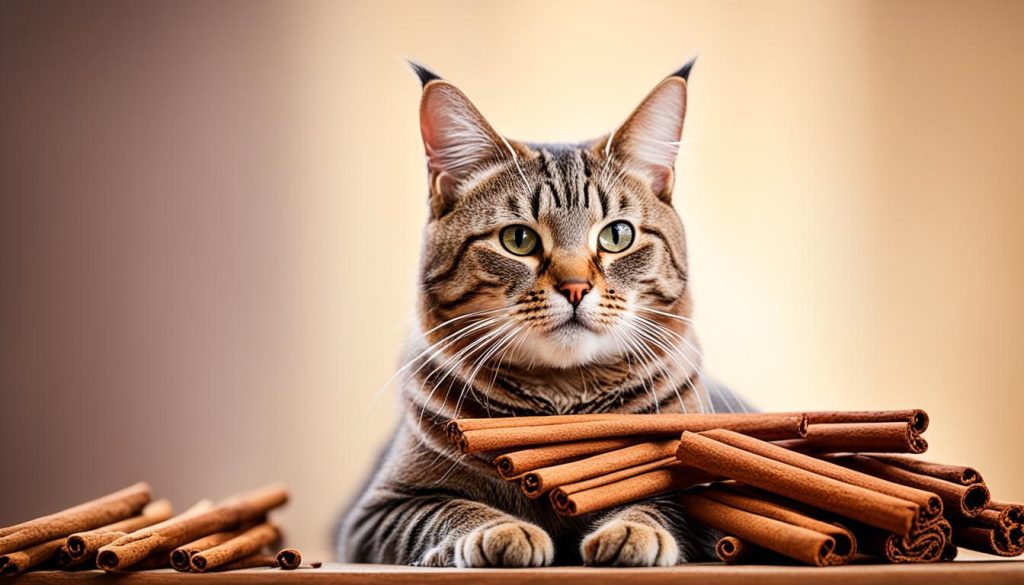
Signs of Cinnamon Toxicity or Allergic Reactions in Cats
Ingesting cinnamon can have adverse effects on cats, leading to both cinnamon toxicity and allergic reactions. It’s important for cat owners to be aware of the signs that may indicate these conditions. While the likelihood of cinnamon toxicity is relatively low, it’s crucial to avoid repeated exposure to cinnamon and seek veterinary advice if any symptoms occur.
Signs of Cinnamon Toxicity in Cats:
- Low blood sugar
- Weakness
- Liver damage
- Vomiting
- Diarrhea
- Changes in heart rate
Cinnamon contains compounds that can affect a cat’s blood sugar levels and liver function, which can result in various symptoms. If you notice any of these signs after your cat has ingested cinnamon or come into contact with it, it’s important to consult with a veterinarian for proper evaluation and treatment.
Signs of Allergic Reactions to Cinnamon in Cats:
- Skin rashes
- Hives
- Itching
- Gastrointestinal issues (such as vomiting and diarrhea)
Just like humans, cats can develop allergies to certain substances, including cinnamon. Allergic reactions can present in various ways, ranging from skin irritations to gastrointestinal discomfort. If your cat displays any of these symptoms after exposure to cinnamon, it’s important to seek veterinary advice to determine the best course of action.
What to Do if Your Cat Eats Cinnamon
If you suspect that your cat has consumed cinnamon, it’s important to take immediate action to ensure their health and well-being. Here are the steps to follow:
- Contact your veterinarian: Reach out to your vet and inform them about the situation. They will provide guidance on the necessary steps to take based on your cat’s condition.
- Bathe the cat: If the cinnamon residue is on your cat’s fur or skin, give them a gentle bath using lukewarm water and a cat-friendly shampoo. This will help remove any traces of cinnamon that might have come into contact with their body.
- Monitor liver and clotting functions: Your veterinarian may recommend blood work to check your cat’s liver and clotting functions. This is important because cinnamon can impact these functions in cats due to their limited ability to metabolize its compounds.
- Provide fluids: To dilute any ingested cinnamon and support your cat’s hydration, your veterinarian may suggest offering them fluids. It’s important to follow their instructions regarding the type and amount of fluids to provide.
In case of an emergency and if a veterinarian is unavailable, it is recommended to contact pet poison control helplines immediately. They can provide expert advice to help you address the situation promptly and minimize any potential harm to your cat.
Can Cats Safely Eat Cinnamon? Expert Opinions
When it comes to the question of whether cats can safely eat cinnamon, expert opinions offer valuable insights. According to the ASPCA (American Society for the Prevention of Cruelty to Animals), cinnamon is not considered toxic to cats. However, it is important to approach cinnamon consumption with caution and take certain factors into consideration.
While cinnamon itself may not be harmful to cats, it is recommended to avoid letting cats consume foods that contain cinnamon alongside other potentially harmful ingredients like chocolate and nutmeg. These ingredients can have adverse effects on a cat’s health. Additionally, some cats may be more sensitive to cinnamon, experiencing digestive upset or other health issues after ingestion.
Cinnamon oils, which are highly concentrated, pose a greater risk to cats. Ingesting cinnamon oils can lead to various health problems such as muscle weakness, changes in behavior, and hypothermia. It is important to keep cinnamon oils and any products containing them out of reach from curious felines.
When considering introducing cinnamon to a cat’s diet, it is always best to consult with a veterinarian. A veterinarian can provide personalized advice based on a cat’s specific health needs. They can guide pet owners on the appropriate amount of cinnamon that can be safely consumed and recommend cat-safe spices or alternatives that can add flavor to a cat’s diet.
If you have any concerns about your cat’s health or suspect cinnamon ingestion, it is important to seek professional advice. Contacting a pet poison helpline or the ASPCA Animal Poison Control Center can provide immediate expert guidance in case of an emergency or potential toxicity. Remember, ensuring the well-being and safety of our feline companions is a top priority.
The Dangers of Cinnamon for Cats
While cinnamon is a popular spice in many households, it can be dangerous for our feline friends. Cats are more sensitive to certain compounds found in cinnamon, which can lead to various health risks. It’s essential to be aware of the potential dangers to keep our cats safe and healthy.
Health Complications and Symptoms
Cinnamon contains a compound called coumarin, which cats cannot metabolize effectively. Ingesting cinnamon can result in a range of symptoms, including vomiting, diarrhea, coughing, breathlessness, and even liver failure. These health complications can be severe and require immediate veterinary attention.
Allergic Reactions and Skin Irritation
Inhaling or coming into contact with cinnamon can also trigger allergic reactions in cats. This can manifest as wheezing, coughing, sneezing, and skin irritation. It’s important to note that even the slightest exposure to cinnamon can pose a risk to our feline companions, so precautions should be taken to prevent any contact.
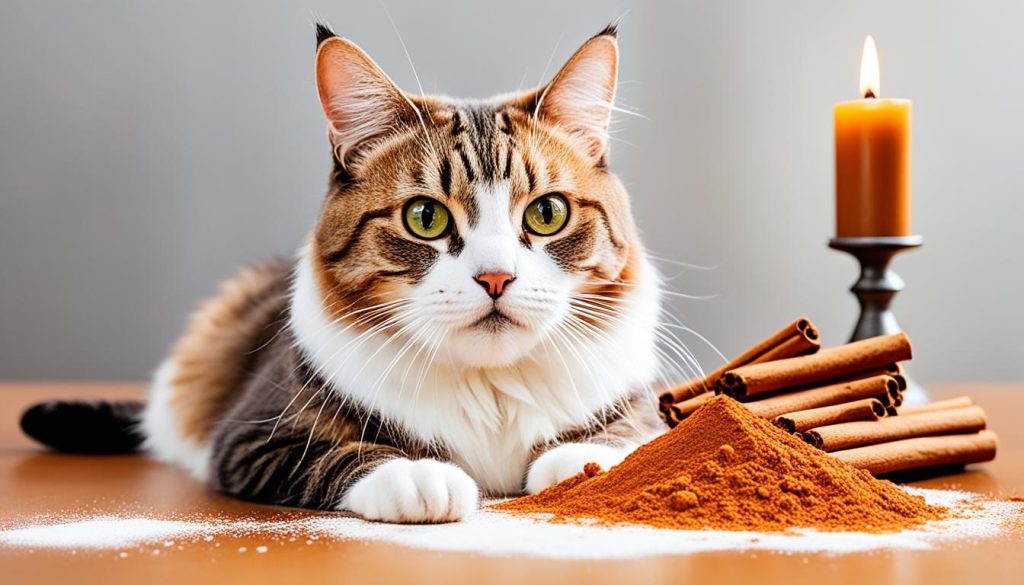
Preventing Dangers: Keeping Cinnamon Away from Cats
- Avoid using cinnamon-scented candles or air fresheners in areas accessible to cats.
- Store cinnamon sticks, powdered cinnamon, or any cinnamon-related products in secure locations, out of your cat’s reach.
- Dispose of used cinnamon sticks or other cinnamon products properly to prevent accidental ingestion by cats.
- If you use cinnamon for cooking or baking, ensure that your cat is kept away from the preparation area and any food containing cinnamon.
By being mindful of the potential dangers of cinnamon and taking the necessary precautions, we can keep our beloved cats safe and prevent any health complications that may arise from cinnamon exposure.
Conclusion
After conducting thorough research on the topic of cats and cinnamon safety, it can be concluded that while cinnamon is not considered toxic to cats, it is best to keep them away from it. Although cats may not experience immediate severe effects from consuming cinnamon, there are potential risks and health complications involved.
Cinnamon contains compounds that can cause digestive issues and interfere with clotting in cats due to the absence of a liver enzyme necessary for metabolizing these compounds. Furthermore, coumarin, a compound found in cinnamon, acts as a blood thinner, potentially leading to problems for cats.
To ensure the well-being and safety of our feline companions, it is advisable to limit their exposure to cinnamon and prevent them from ingesting it. Additionally, it’s crucial to avoid contact with cinnamon through their skin or fur as they may groom themselves and accidentally consume it. In case of accidental ingestion or any signs of cinnamon toxicity or allergic reactions, it is important to consult with a veterinarian promptly.
Prioritizing the health and comfort of cats means taking precautions and being aware of the potential risks associated with certain substances they may come into contact with. While cinnamon can add flavor and aroma to our lives, it’s better to reserve its consumption for humans and ensure our beloved cats stay safe and healthy.

